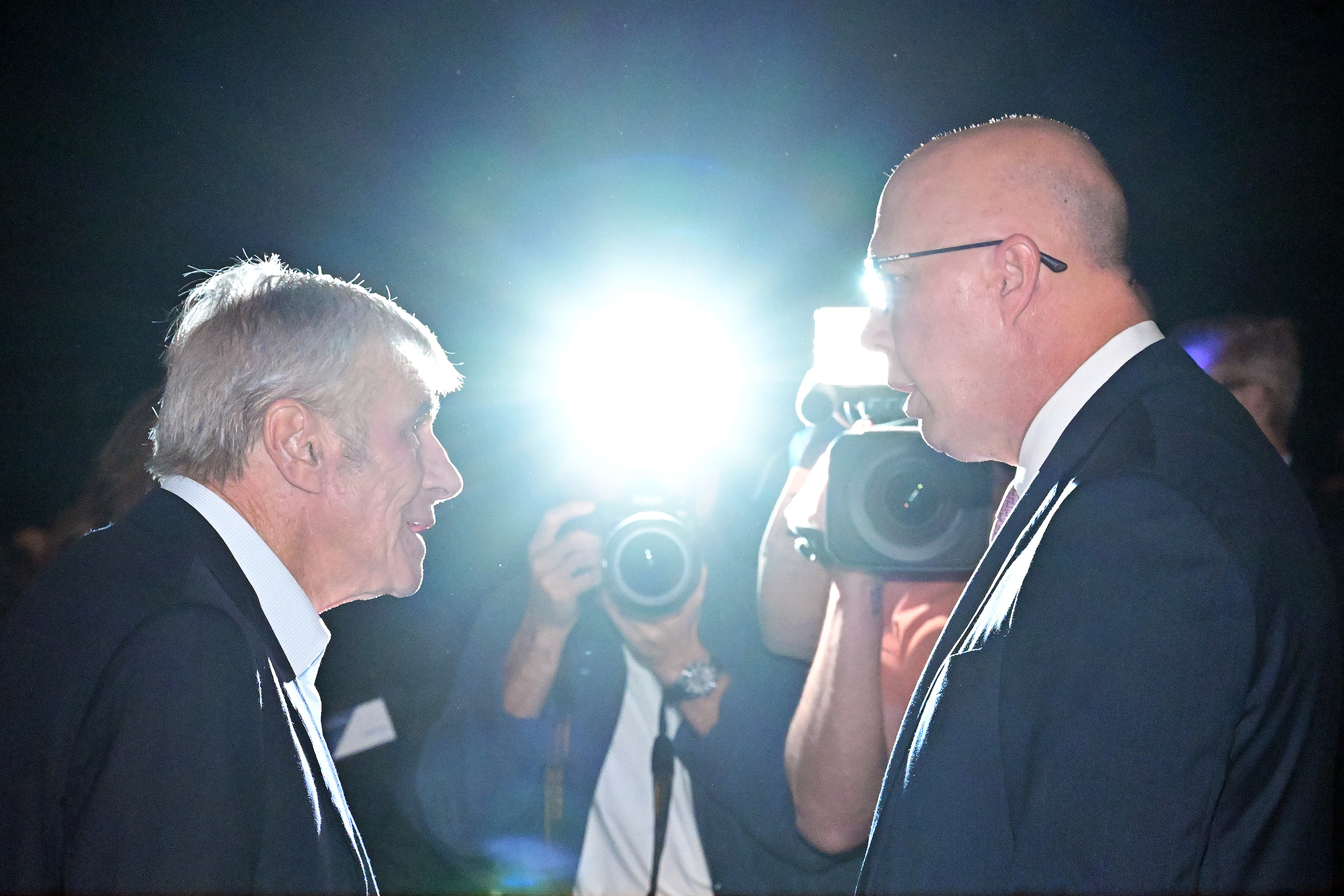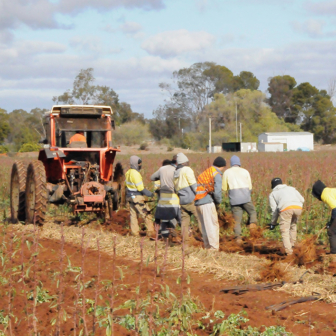Throughout last year, Western Sydney Liberals from non-English-speaking backgrounds pleaded privately for Peter Dutton to tone down his language about the war in Gaza. Alongside his uncompromising stance on immigration, they warned, his strident advocacy for Israel and lack of public compassion for ordinary Palestinians was making it harder to regain key Labor-held seats on Sydney’s western fringe, where significant numbers of voters come from Middle Eastern backgrounds.
These Liberals dearly wanted Dutton to win the coming federal election, and they believed the Albanese government was only aiding that objective. But they feared that the Liberal leader’s vehemence, while admittedly attracting financial and electoral backing from the Jewish community and putting Anthony Albanese under pressure, could turn off some voters in seats he needed to win.
Dutton eventually adjusted his language, not so much about Israel but certainly about migrants. Before the campaign proper was underway, he began talking about the value of migration, albeit mostly in a historical context. He also moderated his comments about China in the quest to restore ties with Australians of Chinese heritage whose communities bore the brunt of the Morrison government’s hostility and punished Liberal MPs as a result.
Now properly on the hustings, Dutton is still leaning heavily on his traditional credentials, blaming high migration for the burgeoning cost of housing and talking tough on defence and security. But he also speaks positively about trade with China and has been carefully sprinkling his calls for fewer migrants with praise for their contribution to Australia, especially on his visits to Western Sydney.
This week, as the campaign’s halfway mark approaches, that praise is suddenly flowing more freely. During Tuesday night’s leaders’ debate on Sky News featuring questions from undecided voters in Sydney’s west, Dutton paid tribute to migrants’ contribution to the social fabric.
He did it again the next day when he was questioned about his proposed cut to their numbers. At a breakfast in Perth on Friday hosted by the West Australian, he lauded the newspaper’s Australian-born owner, Kerry Stokes, who was present, and parlayed that into more praise for migrants.
“I want our kids to be taught that we live in the best country in the world — to restore our national pride,” he said. “And in part, we do that by talking about people who have made us the great country that we are — including and in particular the migrants who have come here since the Second World War with nothing and are now billionaires — or people who have built an empire, educated their kids and grandkids.”
Dutton means what he says about migrants, the good and bad. The problem he faces, though, is that he’s spent years building a brand and now he’s trying to reshape it. That’s hard to do at any time, let alone in the middle of an election campaign.
As voting day nears, this challenge is central to the Coalition’s struggle. Its brand overall is also being muddied.
Over the past three years, Dutton and his colleagues have spent so much energy winning the politics and wrong-footing the government that they seem to have forgotten to do the rest of the work. The Coalition’s reputation as the superior economic manager has been scarred by populist short-termism, tin-eared acquiescence to various interest groups, policy corner-cutting and now some spectacular about-turns.
To those of us who have watched a few campaigns, this week’s decision to abandon a month-old pledge to ban public servants from working from home was gobsmacking. It had to happen, mind you, because the idea was a stinker, but it should have been nixed before it was ever announced.
The mid-campaign reversal doubtless stemmed some of the outflow of votes in crucial seats. But that still comes at a cost. It highlighted a lack of awareness of how integral home-working has become to many people’s lives in just a few short years.
What’s more, while the policy caused panic, the reversal doesn’t necessarily deliver reassurance. Some voters will be asking: if they believed it was such a good idea, is it really gone for good? So now the Coalition has twin problems: consistency and credibility.
The small-target policy strategy and political aggression Dutton employed between elections worked extremely well in uniting the battered Coalition after their walloping in 2022. But a plan to hold the team together enough to strip paint from the government over three years is not necessarily the same as a plan to convince voters to throw out the incumbents. The Coalition needed to develop both at once. It’s starting to look like it did one but forgot the other.
Despite assurances that more detailed announcements are coming soon — and the release this week of modelling for its apparently latterly reworked gas reservation policy — there’s a creeping impression that the substantial early work was never done. That impression can be the legacy of leaving announcements till the last minute. Even if the work was done, the eleventh-hour unveiling also means voters might switch off before you’ve proven it. With the nation now on school holidays, followed by Easter and then the Anzac Day weekend, that risk is already high.
Then there are the inevitable campaign curveballs — candidate stuffups, historical dirt and seat-specific setbacks from left field. For example, the Liberals’ chances of retaining the relatively affluent northern Sydney seat of Bradfield upon the retirement of former minister Paul Fletcher are slipping, not only because of the prominence of teal independent Nicolette Boele, who ran last time and did very well, but also through the addition of independent Andy Yin to the mix.
Yin sought Liberal endorsement to run at both local and state levels but was rejected. His family owns the Phoenix Restaurants Group and his campaign seems to be well-funded, with huge banners appearing in local shopping centres across the electorate. He is leveraging his Chinese-Australian heritage and what he describes as his “Liberal values” to draw votes from both Boele and Liberal candidate Gisele Kapterian. The threat is greatest to Kapterian because he’ll split the conservative vote. And he doesn’t seem to be there to help her win.
All of this only does more damage if the overall message isn’t already cemented in voters’ minds. Small-target strategies work best against long-term governments whose capital is so diminished that their opponents need do little more than stay upright and breathing and spruik a few halfway sensible ideas. They’re much less effective when voters still need some convincing to kick out the incumbents. The Albanese government is certainly vulnerable. But when a challenger leaves it this late to tell its story it’s harder for voters to make the break. If the ideas aren’t out there, the narrative isn’t clear and the brand and policies keep changing, the chances of victory shrivel.
Re-running a campaign slogan — Who do you trust? — that was potent for John Howard against Mark Latham in 2004 might well be effective if voters have doubts about your opponent. But asking that question is only a good idea if you’re certain the answer will be you. •




